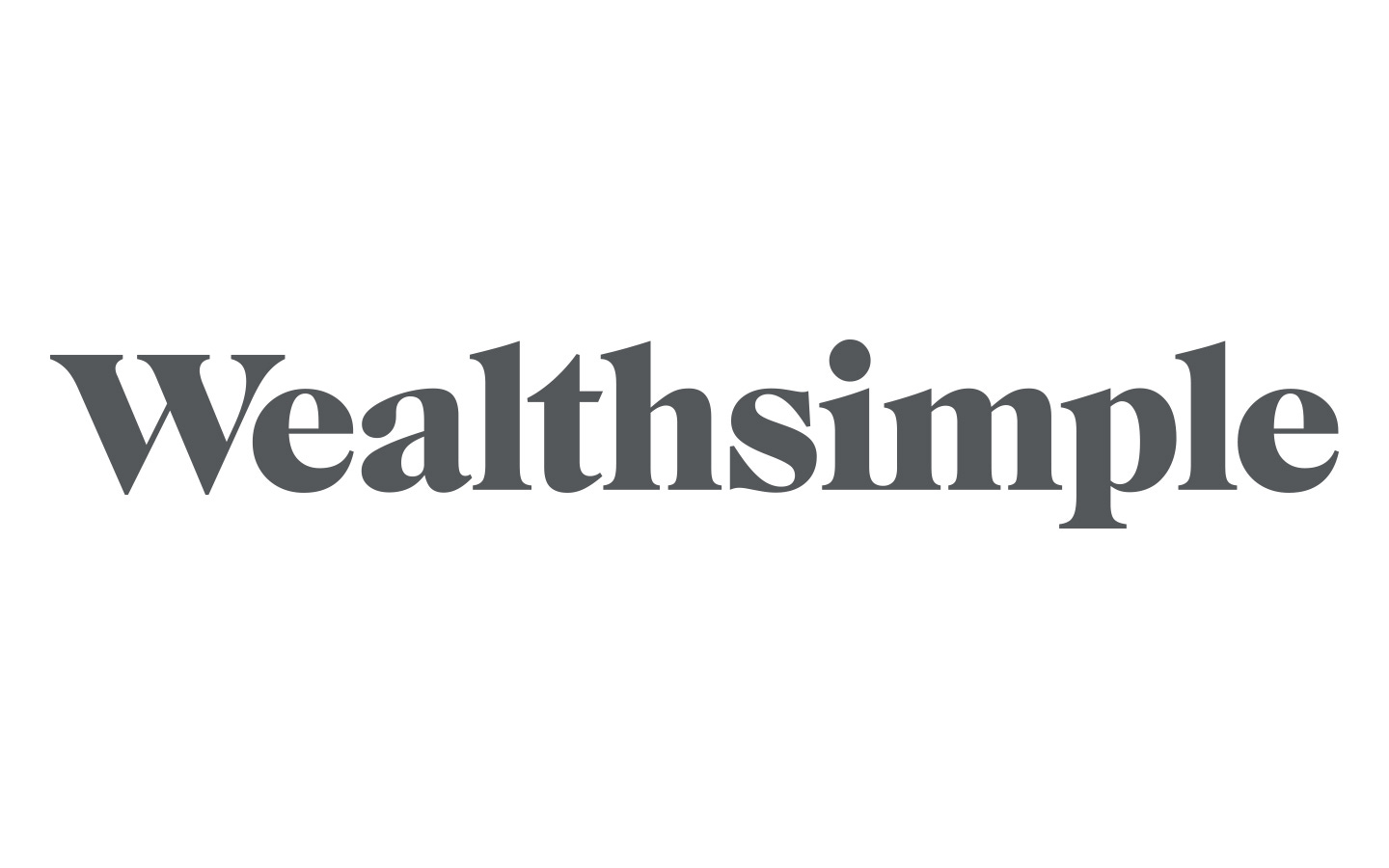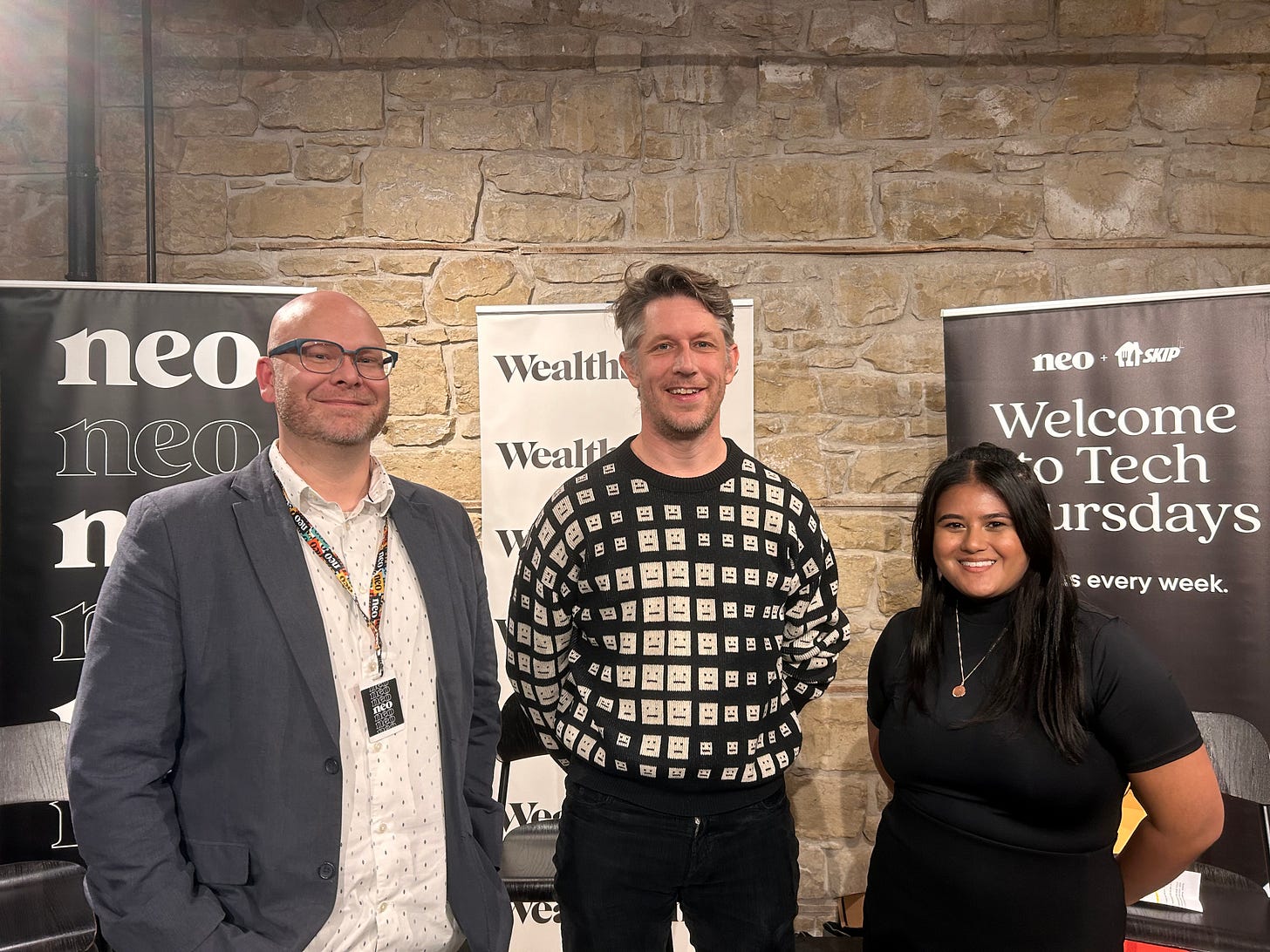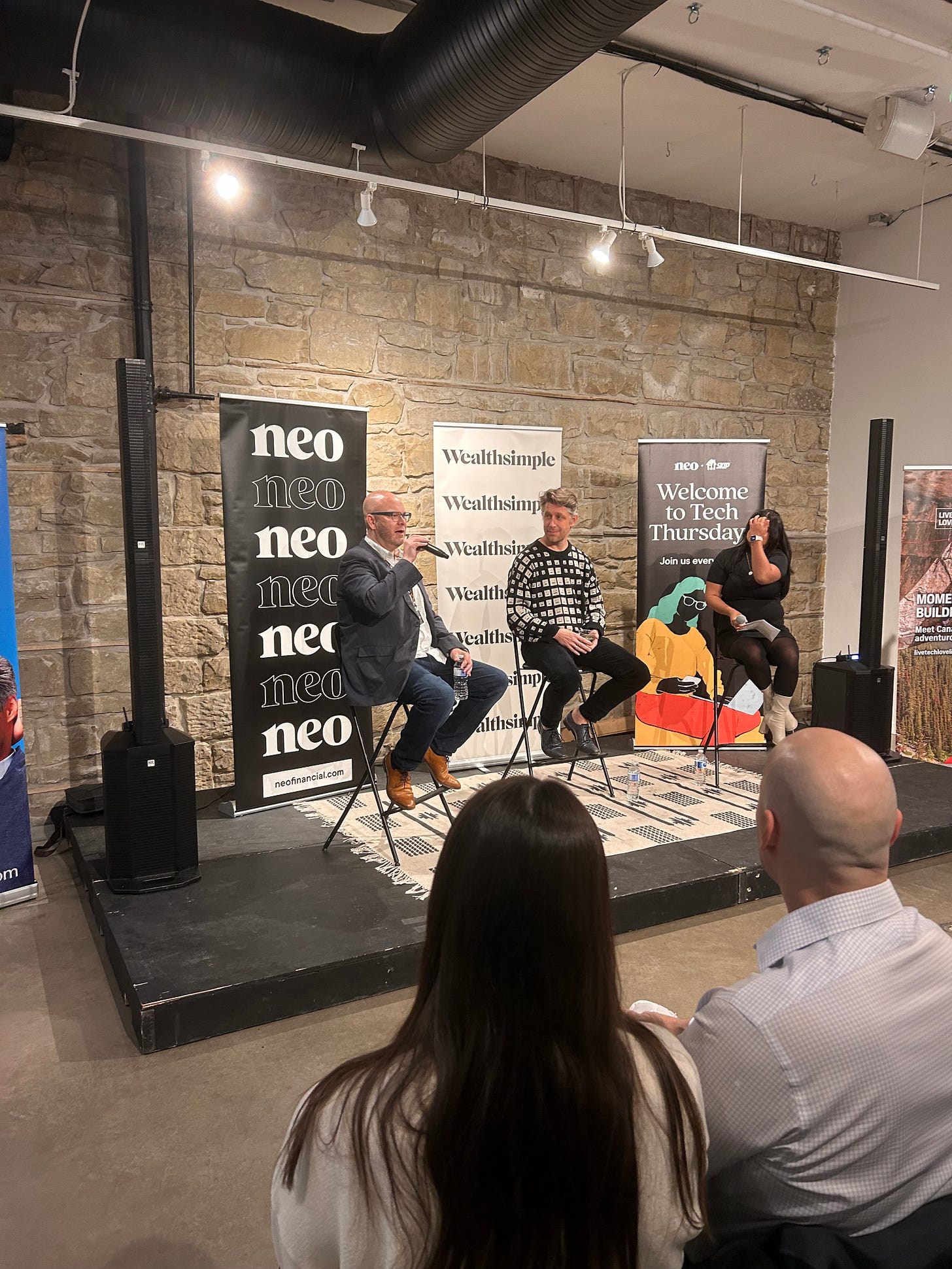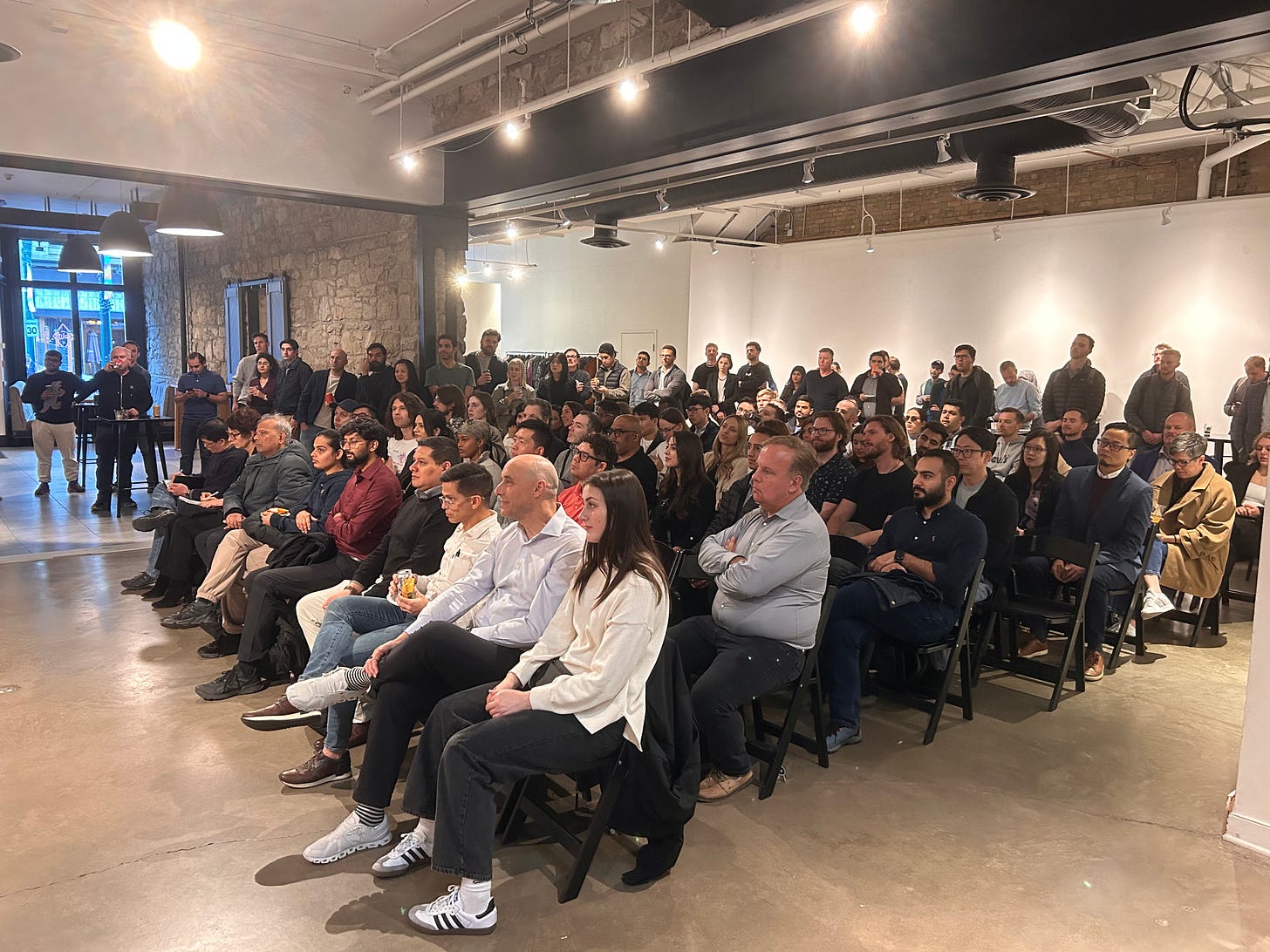CTO to CTO: A recap of a conversation between Wealthsimple and Neo Financial
Kris Read and Diederik van Liere break down their views on the FinTech industry, how to stay competitive, and what the future holds.
Last week, Tech Thursday brought together the CTO’s of both Neo Financial and Wealthsimple to discuss building FinTech giants in Canada. The event featured:
Diederik van Liere, CTO at Wealthsimple
Kris Read, Co-Founder and CTO at Neo Financial
Tsering Asha Leba, Senior Editor at Avenue Calgary
The conversation covered the current state of the financial industry in Canada, how to stay competitive in the Canadian market, and the future of FinTech in Canada. Here is my recap of top ideas from the conversation, brought to you by Wealthsimple.
From left, Kris Read, CTO at Neo Financial, Diederik van Liere, CTO at Wealthsimple, and Tsering Asha Leba, Senior Editor at Avenue Magazine
🏢 Are Canadians being underserved by its Financial Institutions?
Canadians pay the most in banking fees in the developed world: Legacy banks in Canada are slow to adapt to change, especially in times of crisis, like the COVID-19 pandemic, where responsiveness and product evolution lagged behind consumer needs. It only takes some travel outside of the country to see how much more competitive, affordable, and consumer-friendly banking systems in other countries are compared to Canada.
Empowering Canadians to feel confident with their finances: Traditional banks thrive on complexity, making consumers feel insecure about their financial decisions. Wealthsimple and Neo Financial aim to simplify banking, offering transparent products that empower users to make confident financial choices. Modern technology, like seamless mobile banking and enhanced security, is essential to providing Canadians with a better banking experience.
Challenge to traditional banking, not each other: The goal isn't just for Neo and Wealthsimple to succeed, but for all Canadians to benefit. These two companies aren’t competing with each other, but rather the existing system where the big banks have a dominant share of the market. The introduction of competition should spur legacy banks to offer better mortgage rates, savings accounts, and investment options, ultimately benefiting consumers.
The stability of the big banks: There’s a common belief that our current financial system, which favours stability over innovation, has benefitted Canadians. However, in recent months, we’ve seen the big banks being slapped with massive Anti-Money Laundering fines, putting into question whether a controlled oligopoly is really as stable and safe as we’ve thought.
🚀 How have Neo Financial and Wealthsimple stayed competitive in the highly regulated Financial Industry?
Building Fintech startups in Canada, especially in a heavily regulated industry dominated by large banks, has been a difficult journey. Competing with institutions that have had centuries to build their products and infrastructure is intimidating from the start.
Neo Financial has taken a Grassroots Strategy: Neo Financial built strong connections with small and local businesses, partnering with over 12,000 to offer rewards through its credit card. Neo has also partnered with large, trusted retailers in Canada like Tim Hortons and Hudson’s Bay. This strategy helped Neo build trust with their consumers.
Wealthsimple focuses on its Customer-Centric Approach: Diederik emphasized that Wealthsimple's success over the past decade comes from a deep commitment to building products that customers truly love. Their "magic sauce" has been listening to customers’ needs and turning those insights into simple, easy-to-use financial tools. They’ve fostered a human-centric relationship with their customers through personal touchpoints, such as exclusive, fully booked, client events in major cities. The human-centered approach makes the company relatable and trusted, with many Canadians rooting for their continued success.
Wealthsimple, the money management platform on a mission to help Canadians achieve financial freedom, announced plans to expand hiring in Alberta. It seeks to tap into the deep pool of talent in the province.
🤝 The Responsibilities and Challenges of Modern CTOs
Kris and Diederik agreed that most of their responsibilities focuses on hiring talent and being a bridge between business strategy and technology. Beyond that, here’s what they had to say about their roles:
“Playing defense against the future”: Kris noted the necessity of anticipating the future —both in terms of team composition and technology—as startups evolve quickly.
"Unshipping" at Wealthsimple: Diederik shared the practice of "unshipping"—removing unnecessary features or code from their systems to stay nimble. This process of decluttering keeps the company remain efficient.
Maintaining Speed and Culture: Both leaders are deeply invested in maintaining their companies' fast-paced, startup cultures. They understand that as companies grow, it's easy to slow down and lose the passion and agility that defined their early days, and they actively work to preserve that dynamism.
📈 The future of FinTech in Canada
The future of FinTech can already be seen in other countries, where challenger banks and FinTech companies have made significant strides. In Canada you can see a similar trajectory, with the potential for rapid growth and innovation in the coming years. Canada is slightly behind other countries in FinTech adoption but we’re poised to catch up.
A Journey of Improvement: Kris acknowledges that Neo might not be the best today, but with each product release they get better. With faster innovation than the big banks and a focus on what the customer really wants, they will eventually reach the top.
Generational Shift: Younger generations, having grown up in a digitally savvy world, are more inclined to adopt FinTech services. While older generations may be wary of online banking, younger users are more comfortable navigating digital platforms. This generational change will be a key factor in the continued success of FinTech in Canada.
Both speakers highlighted the importance of users’ choice in shaping the success of companies like Neo and Wealthsimple, suggesting that users are part of the solution by supporting innovation and adopting new financial tools.
TL;DR
Bright Future for FinTech: With a generational shift toward digital-first solutions, Canada’s FinTech sector is poised for growth, following global trends in financial innovation.
Disrupting Traditional Banking: Neo Financial and Wealthsimple are a challenge to Canada's outdated banking system, bringing innovation, transparency, and consumer empowerment through tech-driven solutions.
Competition Benefits Canadians: Introducing FinTech alternatives fosters competition, pushing legacy banks to offer better rates, products, and services, ultimately benefiting consumers.
Customer-Centric Growth: Both companies focus on building strong, community-driven relationships with customers, continuously improving products based on feedback to stay competitive and relevant.







